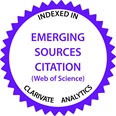Abstract
The subject of the article is the strategic management of human resources in the macro-organizational dimension of public administration system and its effi- ciency concerning Polish civil services in the governmental administration. The main task of the HRM system is to ensure and competently manage competences required for public administration. This system should be capable of building and managing social capital in public administration, which is creating an organizational culture enhancing its efficiency and credibility in public opinion. Western bureaucracies have been confronted for several decades with the problems related to the transition from classic Weberian model of public administration to new paradigms of the New Public Management, democratic governance and the civil service respecting social and cultural diversity and participatory HRM. The reforms in developed countries conduced to move from a regulatoryreactive approach to a strategic approach and active steering of the HR development. Most of post-communist countries are still seeking an adequate model for their civil service and an appropriate status of their civil servants. This model should respond to the standards of liberal democracy and, at the same time, ensure efficient government in the difficult conditions of backwardness of national economy, developing globalization and European integration. A rightly balance between these two categories of objectives is particularly difficult to maintain in the conditions of political instability and the heritage of pathology of political and administrative culture. To this day, in Poland any durable, coherent and holistic strategy of the development of public administration system has not been conceived yet. There is no strategy for the development of human resources in public administration and programmes for its implementation. In practice, the administration by traditional personnel, based on current application of legal rules to individual civil servants, is still prevailing. Taking into account past events and present conditions of the development ofPolish civil service, the author formulates five following postulates, which HRM system of Polish administration has to realise to be able to fulfil the strategic functions and complain to the standards of a civil service of a modern, democratic and efficient State: 1. To define a legal-institutional model of Polish civil service and to develop a strategy and programme of its progressive implementation; 2. To reform present institutional framework of public administration HRM system in view of its modernisation and reinforcement of its strategic functions; 3. To introduce a modern system of prospective planning of HR; 4. To implement modern methods of quality and performance management; 5. To develop the methods and programmes of civil service social capital building adapted to Polish conditions, tradition and culture. These postulates require a reform of present statutory framework of civil service. This reform should become an integral part of a larger public administration and governance reform programme. The development, adoption and effective implementation of such a programme require creation of adequate institutional framework and open discussions involving civic society, scientific milieu and obviously civil servants themselves.
Abstrakt
Przedmiotem rozważań zawartych w artykule jest zarządzanie strategiczne zasobami ludzkimi w skali makroorganizacyjnej systemu administracji publicznej i jego sprawność w odniesieniu do polskiej służby cywilnej w administracji rządowej. Podstawowym zadaniem systemu ZZL jest zapewnienie administracji potrzebnych jej kompetencji i umiejętne nimi gospodarowanie. System ten powinien skuteczne budować i zarządzać kapitałem społecznym administracji, który tworzy kulturę organizacyjną sprzyjającą podniesieniu jej sprawności i budowaniu wiarygodności w oczach jej otoczenia. W Polsce nie powstała dotychczas żadna trwała, spójna i całościowa strategia rozwoju systemu administracji publicznej. Brak jest też strategii rozwoju zasobów ludzkich administracji i programów działań zmierzających do jej wdrożenia. W praktyce dominuje tradycyjne administrowanie personelem, polegające na bieżącym stosowaniu przepisów prawnych w stosunku do poszczególnych członków korpusu służby cywilnej. Uwzględniając zaszłości historyczne i obecne uwarunkowania rozwoju służby cywilnej w Polsce, autor formułuje w artykule kilka postulatów jakie system zarządzania zasobami ludzkimi polskiej administracji powinien spełniać, żeby móc pełnić funkcje strategiczne i odpowiadać standardom służby cywilnej nowoczesnego, demokratycznego i sprawnego państwa. Zdaniem autora, należałoby w tym celu: 1. Określić docelowy model prawno-ustrojowego polskiej służby cywilnej oraz opracować strategię i program progresywnego wdrażania tego modelu; 2. Zreformować obecne ramy instytucjonalne systemu ZZL administracji publicznej w celu jego unowocześnienia i wzmocnienia jego funkcji strategicznych; 3. Wprowadzić nowoczesny system perspektywicznego planowania zasobów kadrowych administracji; 4. Wdrożyć nowoczesne metody zarządzania skutecznością, wydajnością i jakością działania służby cywilnej; 5. Opracować odpowiednie dla polskich uwarunkowań i polskiej tradycji i kultury sposoby budowania kapitału społecznego we wszystkich elementach systemu administracji rządowej. Postulaty te wymagają reformy ram statutowych służby cywilnej. Reforma ta powinna stanowić część składową szerszego programu reform administracji publicznej i systemu rządzenia państwem. Koncepcja, przyjęcie i skuteczne wdrożenie takiego programu wymaga stworzenia odpowiednich ram instytucjonalnych oraz otwartej dyskusji z udziałem środowiska politycznego, organizacji społeczeństwa obywatelskiego, środowisk naukowych, jak i zainteresowanych kadr administracji.
Recommended Citation
Mikułowski, W. (2005). Wyzwania i paradoksy zarządzania strategicznego zasobami ludzkimi i kapitałem społecznym polskiej administracji. Problemy Zarządzania, 3(10), 51-72. Retrieved from https://press.wz.uw.edu.pl/ems/vol3/iss10/4
First Page
51
Last Page
72
Page Count
21
Publisher
University of Warsaw







